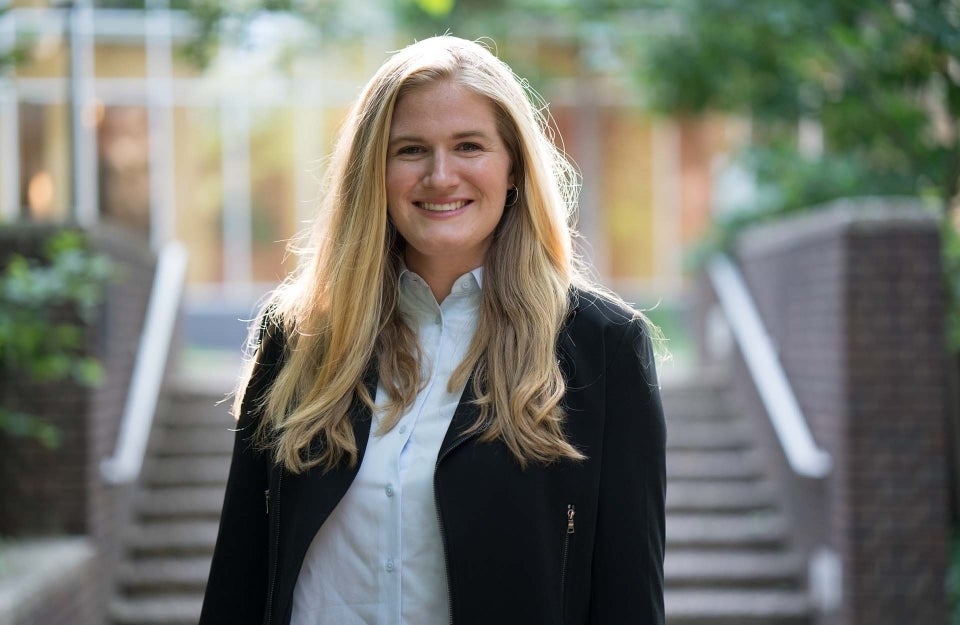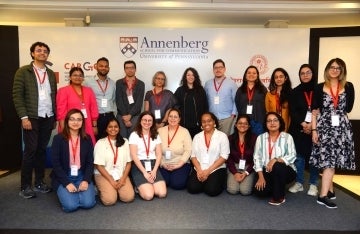Herbert Named 2020 Mirzayan Fellow at National Academies
She will study science and technology policy and the role that scientists and engineers play in advising the nation.

How can experts best communicate their research to both the general public and policymakers? What strategies create the most trust in scientific and medical evidence, and what techniques best present the information in ways that those outside the scientific community can understand?
Doctoral Candidate Natalie Herbert has been studying these questions and more throughout her time at the Annenberg School. And now, she has been selected to participate in the Christine Mirzayan Science and Technology Policy Graduate Fellowship Program at the National Academies of Sciences, Engineering, and Medicine in Washington, D.C.
The National Academies bring experts together from all areas of research, and those experts communicate what they know to policymakers and the public to facilitate better evidence-based policy. The Mirzayan Fellowship gives early career individuals the opportunity to spend twelve weeks at the National Academies learning about science and technology policy and the role that scientists and engineers play in advising the nation.
“As we continue to see policies enacted that go against science and what scientists know to be true from rigorous research,” says Herbert, “the work of the National Academies is increasingly important for creating the kind of society in which I want to live.”
As a Mirzayan Fellow, Herbert will work for the InterAcademy Partnership for Policy (IAP) developing a series of workshops and guides for academies’ media strategies when releasing new consensus reports, including how to use press to reach policymakers and the public.
Herbert is a message effects scholar, interested in how expert uncertainty can be misconstrued as expert conflict in the public health domain. She is currently testing message interventions to reduce the negative effects of perceived conflict and increase trust in science and expert recommendations. In addition, Herbert is involved in a collaboration with the University of Pennsylvania School of Nursing that uses virtual reality technology to train citizens to administer naloxone in order to reverse opioid overdoses.
“I have studied how the National Academies communicate uncertainty from research about e-cigarettes, a topic of ongoing policymaking with important public health consequences,” Herbert says. “And I am thrilled to now be gaining experience in crafting those communications for science and technology policy.”



